Monsters of Rock!
- Charles Meynell
- Feb 26, 2021
- 14 min read

Donington ‘Download Festival’ will rock once more as a shortened 2-day festival is announced!
The Coronavirus pandemic saw off the 2020 Download Festival, and our local rock festival that used to attract over 100,000 music lovers, looked doomed for this year … but the 2021 Festival has announced it is going to go ahead with a 2-day truncated festival on 04-06 June. The line up is not yet confirmed but Kiss and Megadeth headline (amongst many more) who were confirmed in 2020 for 2021.
So, crossing fingers that this important event does make it this year, we look back at the history of ‘Download’ which has been going since 1980, and prior to 1997 under its former guise of ‘Monsters of Rock’.
Read on for our little dip into heavy metal history and the ‘rock gods’ that have played at Donington Park over the years ….
But first, why choose to hold a rock concert at Donington at all?
Like so many things, holding a concert at Donington was originally just a one-off. Conceived by promoters Maurice Jones and Paul Loasby as a way of signalling the end of Rainbow’s Down To Earth tour, this wasn’t actually supposed to be the birth of a landmark event, just a one-off day out.
But it was so well received - some equate it to being the start of our latter-day festivals we have nowadays - Monsters Of Rock became a tradition that dominated the 1980’s. The first bill was a superb cross-section of bands from the UK, Europe and North America. Inevitably, Rainbow were the star attraction, but Judas Priest, Scorpions and Saxon gave the day heavyweight depth, while April Wine, Riot and Touch added a transatlantic sheen.

Donington was an inspired choice. The proximity to the birthplace of Heavy Metal, Birmingham, was prescient.
But what is ‘heavy metal’ music anyway?
1 million years BC - Friday 13th February 1970: a primer of heavy metal lore for the uninitiated!
Some say that the roots of music lie in the percussion and vocalisations used by the earliest humans. This is probably correct but pinpointing the source of heavy metal is just as imprecise. The style and form of heavy metal owe more to rhythm and blues music than anything else, Chuck Berry being a huge early influence, especially around the cult of the guitar - but more on that later.

Development of any musical style is an inexact process. Styles blend into one another, they take two steps forward and one step back. They do not evolve in any way in a steady or a linear fashion. We have to track trends rather than direct lines. Determining when rhythm and blues became rock n' roll or when heavy metal turns into thrash metal is a bit like trying to determine when dawn turns into morning.
There is a reasonable case that heavy metal is the sum of everything that came before. It has tribal drumming. Has the multi-octave range of opera. Has the rootsy storytelling of folk as well as bardic influences. Heavy metal is such a huge and diverse category that there is almost no aspect of the musical lexicon that it hasn't already been cherry-picked by it.
The practical building blocks of the genre were emerging, starting with the guitar, just after the Second World War. The guitar, which had been a backing instrument until the 1950’s had forced its way, via the blues and American gospel, folk and jazz music, to the forefront where its range and versatility emerged from under the hitherto all-conquering piano.
Then there was more sampling from blues, namely vocal style. Howlin' Wolf, another blues singer with an extraordinary voice: deep, thick, gravelly and resonant with a truly ‘heavy’ style (eg. ‘Killing Floor’, much covered by Led Zeppelin, Jimmy Hendrix et al) changed the white guy sixties blues sound to the gritty, haggard sound that became a hallmark of heavy metal, one of the clearest links we have connecting heavy metal with a distinct source material.

It was Chuck Berry, mentioned earlier, who transposed the newly electrified guitar from a background instrument to the front of the stage, and every rock & roll band from thereon has copied it! The quiet sounds emanating from an acoustic guitar were transformed as companies such as Gibson and Fender perfected and enhanced sound performance via legendary electric guitar models such as the ‘Les Paul’, the ‘Stratocaster’ and the ‘Flying V’.
There was one other piece of equipment that was given the turbo treatment, the amplifier. Dave Davies, of The Kinks, wanted his guitar to roar, not conform to polite, shimmery Shadows-like sound, commonplace then. The process of turning up the sound to ‘11’ had commenced.

From the The Kinks, another seminal ‘60’s band called The Who, pushed on with developing sonic heft in the 1960’s (‘My Generation’, the band’s best known track, with its aggressive riff, Roger Daltry’s angry vocals, and the bass break, flagged up the direction of travel). Even Paul McCartney of The Beatles wrote ‘Helter Skelter’ to emulate what The Who were doing … it was heavy and raw for sure, but it was just a one-off.

The real deal, the benchmark against which all other emerging heavy metal bands would be measured at that time, was another British band, Cream.

Eric Clapton (lead guitar/vocals), Ginger Baker (drums) and Jack Bruce (bass) played harder-edged, heavier rock & roll combining psychedelic elements and all very loudly from new fangled Marshall amps with theatre-filling power. Although the band only lasted 4 years, they had already been overhauled by someone even heavier than them from over the water: Jimi Hendrix.

Jimi Hendrix, a former US Air Force para, had honed a guitar style that was an incendiary take on the blues, using screaming feedback with fluency of playing few could match.
Spotted in New York by Chas Chandler of The Animals, he was persuaded to launch his career in Swinging Sixties London. The rest is history but you might be interested to know that Cream’s ‘Sunshine of Your Love’ was written directly after seeing Hendrix play for the first time, in homage!
Meanwhile Pete Townshend of The Who was disgruntled to note that Hendrix had also copied his habit of smashing up his guitar on stage … but that strangely was the touch paper that triggered the birth of British heavy metal as we know it, from an unknown band that was watching from the (then) sidelines: Black Sabbath.

Not all heavy metal bands are the same ...
Black Sabbath was the first heavy metal band.
Not Led Zeppelin. Not Deep Purple, and definitely not the US band Grand Funk Railroad.
The date of birth is Friday 13th February 1970, the release of their self-titled album ‘Black Sabbath’. Every religion, because that’s what Black Sabbath represents to hardcore fans, has its own creation myth.
And lo! It came to pass amongst the blasted furnaces of the Blackest Country, that did three wise men and a holy fool did find their paths entwined.
In the beginning was the word.
The word was Blues.
And the Earth was without form and void.
And it turned out that the name ‘Earth’ was taken.
But they managed to get a few gigs on the pub circuit ...
So what made Black Sabbath different from all the other ‘heavy’ rock and roll bands out there?
Firstly, all the band members hailed from the city of Birmingham, basically ground zero of heavy metal. Birmingham was a ‘metal city’: it made stuff (or used to), the blast furnaces created the ‘black country’ belching their smoke and fumes across the land. The band members, before rock stardom called, were variously a sheet metal worker, an iron foundry worker, a slaughterhouse man (Ozzie Osbourne since you ask) and, erm, an accountant - but for a steel stockholder firm!
Further evidence that Birmingham is the Oxbridge of heavy metal is the roll-call of bands that come from there. Judas Priest, Robert Plant, Led Zeppelin, Deep Purple, Jethro Tull, Slade, Wizzard and many more.
Second, the band noticed that British audiences were fascinated with horror films. Hence they changed their original name from ‘Earth’ to ‘Black Sabbath’ because a film entitled as such had bigger queues outside it than anything they performed at! And with its connotations of death, depression, possession, Satan, murder … it just happened to coincide with the 1960’s boom in horror films, Hammer House of Horror filmmakers being at the forefront of this phenomenon. Demonic possession and the occult played perfectly into the genre they were about to invent.
Black Sabbath were onto something. Writing and singing about the darker side of life, totally in contrast to the happy clappy, ‘everyone loves everyone else’ trotted out endlessly by the hippies of the time, which they were alienated from coming from the harsh, West Midlands rust belt. Sabbath talked about war; it talked about depression and isolation, of death raining down from the skies; about corrupt government and pollution; about nuclear Armageddon, and naturally about the Devil. This is what differentiated Black Sabbath, that and the fact that their appeal was their expression of the occult - and why they all started wearing crucifixes on stage!
So now we know how heavy metal came to be ...
Going back to the history of the music festivals at Donington…
As we said at the beginning of this piece, the first Monsters of Rock line-up, in 1980, consisted of a mix of British and international bands and was a success with 35,000 heavy metal fans attending. Although only conceived as a one-off event, it was mentioned on the day the idea that the festival will return the following year and that first edition birthed what would become a regular festival for the next 15 years, becoming synonymous as a Mecca for fans of the genre and further establishing the Midlands as the home of heavy metal.

Furthermore, Donington Park by its location in the East Midlands next to the M1, A42 and A50 allowed for better transportation to the site from around the country. Additionally the site ground level sloped which allowed for a better viewing for the audience throughout the site.
Over the years, the attendance continued to grow, reaching 107,000 in 1988, when two fans died during the Guns N' Roses set. Initially, the blame was thought to be the size of the crowd and a rush forward during the band's set but officially the cause is laid on the weather, causing muddy and wet conditions on the sloping ground. As a result, the festival did not take place in 1989, but returned the year after with a limitation to the crowd of 75,000.
The Monsters of Rock festival continued on as the premier hard rock and heavy metal event in Great Britain in the 1990s but started to fall upon hard times as heavy metal became less popular, with another cancellation in 1993 due to being unable to find a strong enough headliner. In 1995 the festival found itself in a similar situation until Metallica agreed to play with the condition of the band having control over the event and naming it "Escape from the Studio".
In 1996 Ozzy Osbourne and KISS co-headlined the festival and although there were plans to extend the festival into a two-day event in 1997, the promoters once again found themselves in a struggle for headliners and the event was cancelled and discontinued.
Donington Park remained event-less until 2001 when the Rock and Blues Festival and Stereophonics held events at the site. In 2002 the Ozzfest tour returned to the UK using Donington Park as their only British event and the following year promoters Live Nation picked up the reins as Monsters of Rock's successor and renamed it the Download Festival.
Download? Couldn’t they think of anything better?

The name ‘Download’ was chosen for the festival for two reasons. Downloading was a dirty word in the music industry at the time (2003), due to file sharing, and rock is seen as a rebellious genre of music. Also Download was to be a Monsters of Rock for the 21st century and the internet would provide connectivity with its audience.
Some highlights from the last 18 years of Download.
2003

The first Download was held on 31 May – 1 June 2003. The original headliners were Iron Maiden and Limp Bizkit, although the latter pulled out and were replaced by Audioslave. Metallica attempted to step in as headliners, but were unable to do so, owing to headlining that year's Reading and Leeds Festivals. Instead, having performed an exclusive club show in London the night before, they played an unannounced "secret slot" in the afternoon on the second stage, with no soundcheck. "Sunday belonged to Metallica," wrote Mick Middles in Classic Rock.
"At 3.15 the band were fired into the heart of the festival. Before me, a nonplussed, earplugged infant was held aloft. Somehow it seemed historical. Debuting selections from St. Anger, Metallica swept into a 90-minute frenzy so irresistible that even the Hells Angels were seen clapping in wholehearted appreciation at the end. The coup was complete."
2004
Another stage was added to the festival, bringing the total to three. Seventy-two bands played over the two days. The 2004 event was also notable for several last minute hitches. First, SOiL got lost on the way to Donington and missed their main stage appearance on Saturday (they later joined Drowning Pool on stage to perform Drowning Pool's "Bodies" and their own song "Halo"). Static-X missed their slot due to a bus breakdown. On Sunday, Slayer arrived on time, but their equipment did not, leading to a slot change from the middle of the afternoon on the main stage to a later slot (and longer set) on the second stage. Slayer were replaced on the main stage by Damageplan, who were scheduled to play the second stage. Their setlist ended with a rendition of Damageplan founders Vinnie Paul and Dimebag Darrell's most recognisable song from Pantera, "Walk."
The biggest news came from the headliners Metallica, when Lars Ulrich was rushed to hospital. Taking to the stage an hour and a half late, James Hetfield explained the situation with Ulrich and the show then began with Slayer drummer Dave Lombardo playing on "Battery" and "The Four Horsemen." Slipknot's Joey Jordison played the rest of the set apart from Fade to Black which was played by Metallica's drum technician, Flemming Larsen.
2005
This festival was different from previous years as the Saturday was officially dubbed Ozzfest 2005, as well as an "Indie day" on the first day of the festival.

Billy Idol performed on the Snickers stage on the Friday night, his first UK gig after a lengthy hiatus, performing songs such as White Wedding, Rebel Yell and a cover version of Van Halen's anthem, Jump.
2006
The headlining acts (Tool, Metallica and Guns N' Roses) had sales of approximately 200–250 million albums between them, more than the entire line up of 2006's V Festival!
2006 was the first time the festival was mirrored in the Republic of Ireland, as Download Festival Ireland. 2006 was also by far the warmest year Download has ever had!
But it wasn’t all sweetness and light … during the Sunday headline set of Guns N' Roses, bottles were thrown at the band. This caused problems after the band's lead singer, Axl Rose, slipped on the wet surface and a bottle thrown by the crowd hit bassist Tommy Stinson. Stinson threw a hissy fit and his bass guitar, hitting one of the cameramen, and left the stage. He returned after the song and apologised, but warned the crowd that if this activity continued, he would leave for good. There were some disturbances but they eventually died down, and later in the set Rose commented "I'm actually having quite a good time now! I couldn't have said that an hour ago!"
On the final night, fires were started by some festival goers and police were called, arresting twelve people. At around 4 am, the fire brigade arrived to put out a large fire at a campsite. A number of people had taken the railings that had been used to separate the campsite area from the path and used them to barricade the road to prevent the fire engines from reaching the main fire. At this point a number of police assembled in riot gear and stormed the campsite. The festival director, John Probyn, posted a message on the official website stating that "About 150 people spoiled the end of what had been a great weekend for over 75,000 of us."
2007
The three bands that headlined the 2007 festival were My Chemical Romance, Linkin Park and Iron Maiden.
Hardcore Superstar pulled out of their slot on the Tuborg stage on the Sunday because their tour bus broke down in Germany. Download 2007 featured an Indian band Parikrama. They became the first band from India to make it to Donington.
2008

Donington had a significantly different layout to previous years: the arena area was situated in land to the west of the race track instead of the traditional race track infield area.
The main stage line-up on the first night was impressive: Kiss, Judas Priest and Motorhead. A further 95 bands performed over the subsequent four nights. The usual breakdowns, walk-outs, and tantrums continued with artists debuting for other bands and/or deputising for missed performances. Business as usual at Donington!
2009
The 2009 Download Festival took place on 12–14 June at Donington Park with an estimated attendance of 120,000 over 3 days. One week before the campsite opened, Download released a further 2,500 camping tickets. These limited tickets sold out within 24 hours of being released and resulted in the largest ever attendance at the festival.
Stage headliners this year included Slipknot, Def Leppard, Mötley Crüe, The Prodigy and Anvil supported by another 90+ back up bands.

2010
Download 2010 was the 30th anniversary of rock festivals at Donington Park, since the first one in 1980. Saxon performed their 'Wheels of Steel' album in its entirety to commemorate as they were on the original bill in 1980.
The main headliners were AC/DC who played on an exclusive stage allowing the band to utilise their full stadium show. This marked the first time a headlining band brought their own stage to Donington. "I took my son to see AC/DC..." recalled Saxon's Biff Byford. "Watching Angus (Young), lead guitar legend, from out in the crowd was great, and it was a rite of passage for my son."

Amongst over 100 bands doing their stuff, and in addition to Saxon, were Aerosmith, Billy Idol, Motorhead, and Rage against the Machine.
2011
This year saw The Darkness support headliners Def Leppard, also an appearance from Thin Lizzy, a 1970’s band, and The Cult from the 1980’s, also Alice Cooper, Korn (one of the originals from Monster’s era) and Twisted Sister.
2012
A return to bad weather in 2012 with wet and windy conditions on the site. There was a delay in opening the arena on the Friday, resulting in the cancellation/postponement of certain performers. Nonetheless, headliners for this year’s event included The Prodigy, Machine Head, Metallica and Black Sabbath on the last night to end the event.
Comedian Bob Slayer, who is a regular on the comedy stage at Download, broke his neck doing a wheelie bin crowd surf stunt whilst entertaining at the festival.
2013

The eleventh annual Download festival was confirmed for 14–16 June 2013. Iron Maiden were announced as the Saturday headliner to commemorate 25 Years since first appearing and headlining Monsters of Rock in 1988 on Seventh Tour of a Seventh Tour. Rammstein let slip on the same day that they will be headlining Download on the Sunday. Slipknot and Limp Bizkit also appeared.
2014
This year the festival organisation was even more convoluted and Byzantine than usual, with numerous bands either appearing unexpectedly, double booked or falling out at the last minute. An improbable headliner band called Dying Foetus laughably kept everyone guessing but eventually headlined with Avenged Sevenfold, Linkedin Park and Aerosmith. Royal Blood debuted on the Pepsi Max stage.

2015
Bad weather on the Friday night and Saturday left the Arena, Village and campsites extremely muddy. Many tents were abandoned overnight due to flooding and leaks...the event became known, and not for the first time, as ‘Drownload’. Headliners that year were Slipknot, Muse and Kiss, also Judas Priest, Motley Crue and The Darkness made an appearance.
2016
This year was to be the one that Bruce Dickinson of Iron Maiden was due to fly his Ed Force One 747-400 Jumbo Jet across Download to get to the festival. However, this didn't happen, and in fact Ed Force One flew tamely into East Midlands airport from the opposite direction.
Motörhead were due to play the Main Stage on the Friday of the festival; however, due to the death of lead singer Lemmy Kilmister on 28 December 2015, the band would no longer be playing. Instead the main stage was imaginatively renamed ‘The Lemmy Stage’ in tribute.
‘Drownload’ returned, with heavy rain causing the venue to flood, with some campsites suffering worse than others. The Met Office later confirmed that it could have been the wettest in the festival's history. By Saturday, The Village area was mainly a sea of mud with a bit of straw laid down near the entrance to the Blue Campsite. This led to great difficulty trying to get to the main arena, as one had to walk through thick mud most of the way.

2017-19
Similar but unremarkable events followed between 2017-19, with similar Download events being held in France and Spain.
2020
Cancelled due to the Coronavirus pandemic.
And finally ...
A heavy metal concert is a visceral experience. At a live show fans enjoy the feeling of drums thudding in their chest, piercing lights dazzling their eyes, the sweat and heat of other bodies pressing all around, and the huge wall of sound. Yes, metal concerts are LOUD! If you’ve never been to one, Download is in fact one of the nicest, friendliest rock events you can go to, in contradiction to the aggressive imagery and posturing of the artists and some of the fans. Some of the most agreeable people we have had the pleasure to host here at Breedon have been regular attendees at Download. ‘Nuff said!
(with acknowledgements to Neil Gaiman, Wikipedia and various open sources on the internet)


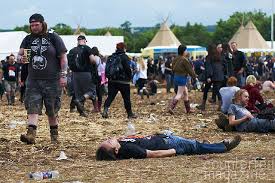
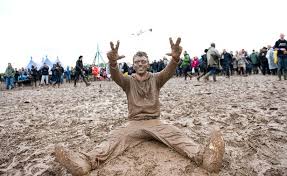
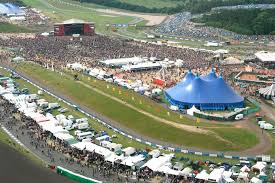
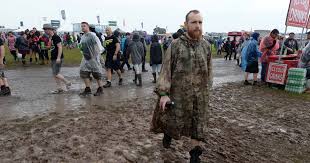
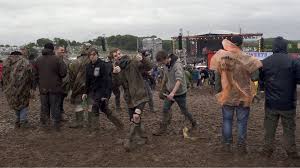
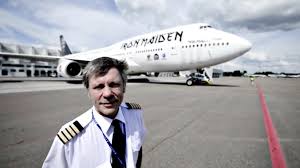
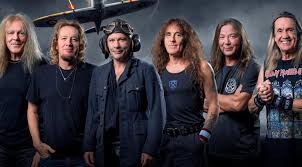
Comments